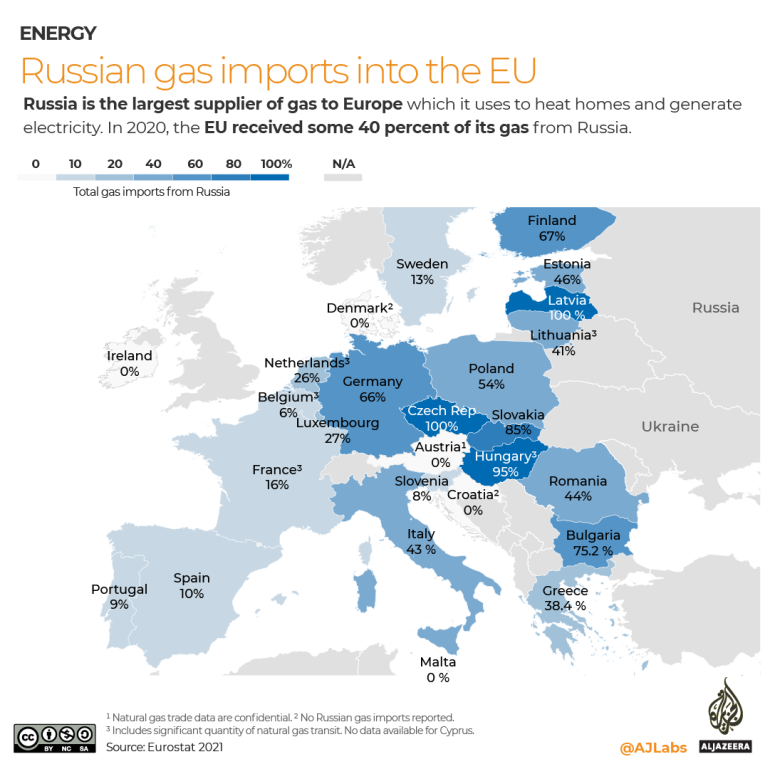Europe faces gas supply disruption after Russia imposes sanctions
Europe is facing increased pressure to secure alternative gas supplies after Moscow imposed sanctions on European subsidiaries of Russia’s state-owned Gazprom energy giant and Ukraine shuttered a major gas transit route, pushing prices higher.
Dutch gas prices at the TTF hub, the European benchmark, rose by about 20 percent on Thursday morning.
The uptick came after Russia rolled out its sanctions late on Wednesday, mainly on Gazprom’s European subsidiaries including Gazprom Germania, an energy trading, storage and transmission business that Germany placed under trusteeship last month to secure supplies.
Moscow also targeted the owner of the Polish part of the Yamal-Europe pipeline that carries Russian gas to Europe, EuRoPol Gaz. The pipeline is jointly owned by Gazprom.
“A ban on transactions and payments to entities under sanctions has been implemented,” Gazprom said in a statement. “For Gazprom, this means a ban on the use of a gas pipeline owned by EuRoPol GAZ to transport Russian gas through Poland.”
Kremlin spokesperson Dmitry Peskov said there can be no relations with the companies affected nor can they take part in supplying Russian gas.
The entities on a list of affected firms on a Russian government website were largely based in countries that have imposed sanctions on Russia in response to its invasion of Ukraine, most of them members of the European Union. Last year, EU countries got about 155 billion cubic metres of gas from Russia.
Germany, Russia’s top client in Europe, said some subsidiaries of Gazprom Germania were receiving no gas because of the sanctions, but are seeking alternatives.
“Gazprom and its subsidiaries are affected,” Habeck told the Bundestag lower house. “This means some of the subsidiaries are getting no more gas from Russia. But the market is offering alternatives.”

Ukraine shuts major transit route
Russia’s sanctions came a day after Kyiv shut a major gas transit route to Europe, blaming interference by occupying Russian forces, the first time exports via Ukraine have been disrupted since Moscow launched its invasion in late February.
The transit point Ukraine shut usually handles about 8 percent of Russian gas flows to Europe, and Kyiv proposed that flows could be re-directed to an alternative transit point, Sudzha.
On Thursday morning, flows through Sudzha had fallen to 53 million cubic metres (mcm) per day, from approximately 70 mcm the day before, Ukraine gas transmission operator data showed.
However, the Ukrainian suspension does not present an immediate gas supply issue, the European Commission said.
Meanwhile, there is still confusion among EU gas companies about a payment scheme decreed by Moscow in March that the European Commission has said would breach EU sanctions.
Russia’s demand that future payments for gas be made in roubles has been rejected by most European buyers over the details of the process, which requires opening accounts with Gazprombank.
That has generated fears about potential supply disruptions should buyers refuse to meet the guidelines to avoid breaching sanctions.
The concerns came against the backdrop of a major increase in European wholesale gas prices during the past year, adding to burdens on households and businesses as they seek to rebound from the economic disruption unleashed by the COVID-19 pandemic.



